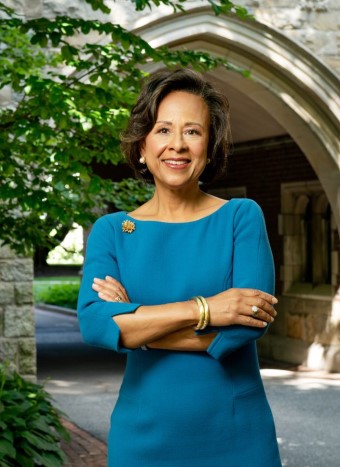
A recent study from the Pew Research Center found that nearly half of women in majority-male STEM workplaces say sexual harassment is a problem. The study was conducted in 2017, before a wave of high profile sexual-harassment allegations created a national conversation about the issue. This statistic makes clear the alarming scope of the problem—and the need for change.
I approach this issue first as president of the world’s preeminent college for women. We know, better than most, the great value and importance of an environment that empowers and supports women. This is a critical factor in our long history of graduates who go on to make a difference in the world and inspire other women to follow.
I have also worked and taught in science and medicine for more than 30 years, and over those years, I found it important—and necessary—to devote much time and attention to helping younger women and peers navigate male-dominated fields.
These experiences led me recently to co-chair the Committee on the Impacts of Sexual Harassment in Academia on Women in Science Technology Engineering and Medicine (STEM), conducted jointly by the National Academies of Sciences, Engineering, and Medicine. Women’s health trailblazer Vivian Pinn ’62 was on an initial joint committee of the Academies on Women in Science, Engineering, and Medicine that first devised the idea for the report.
Our committee was interested in how sexual harassment in academia negatively affects women who pursue careers in STEM fields, including in recruitment, retention, and advancement. From the moment the committee formed in September 2016, we understood the need for a report that would inform the national conversation on sexual harassment. We knew that confronting the issue effectively was central to the safety and well-being of women and critical to the future of these fields.
So, we set out with a bold plan and a committee that included established scientists and practitioners, a former congresswoman, college and university leaders at the highest levels, members of professional societies, a legal scholar, and researchers who examine the effects of sexual harassment.
The result is an evidence-based consensus study of the issue of sexual harassment in the academy and how it harms the careers of women in science, engineering, and medicine. The report uses a definition of sexual harassment that includes gender harassment, which is the most common. We studied closely the policies, strategies, and practices that have proven most successful in preventing and addressing sexual harassment in these settings, and that process informed the study’s recommendations.
If our national education and research system is to function effectively, let alone serve as a model of excellence, women must feel safe as they learn and work. We must ensure that the next generation of women can aspire to careers in STEM without having to confront a culture that devalues, disrespects, or threatens them. No woman should leave her field due to harassment, and greater numbers should join these fields without fear. Only then can women advance their fields with confidence and purpose. Only then can they fully contribute to the progress and innovation that fuels our economy and our standing in the world.
As an institution, Wellesley understands the importance of these issues. More than 50 percent of our faculty are women, and Wellesley’s culture is far more equitable than much of academia, but this does not make Wellesley immune. Our culture of respect is built on—and reinforced by—leadership at every level: administrators, faculty, and students. Even so, we continue to seek new ways to make Wellesley even more equitable. Our dedicated Title IX Office provides the leadership and resources that are part of how we sustain and expand the high standards to which we are committed. (Scroll down to “Wellesley’s Efforts to Prevent Sexual Misconduct.”)
As alumnae of the College, I know you care about the safety, respect, and well-being of women as much as I do. By utilizing fact-based research and drawing on the solidarity and diligence of a community like no other, together we can effect sustainable, positive change. Key to this will be how we meet our singular responsibility: to help equip our students to lead the way in forever changing academia and the workplace for all women.
To learn more about the committee’s report, visit www.nationalacademies.org/SHstudy.





